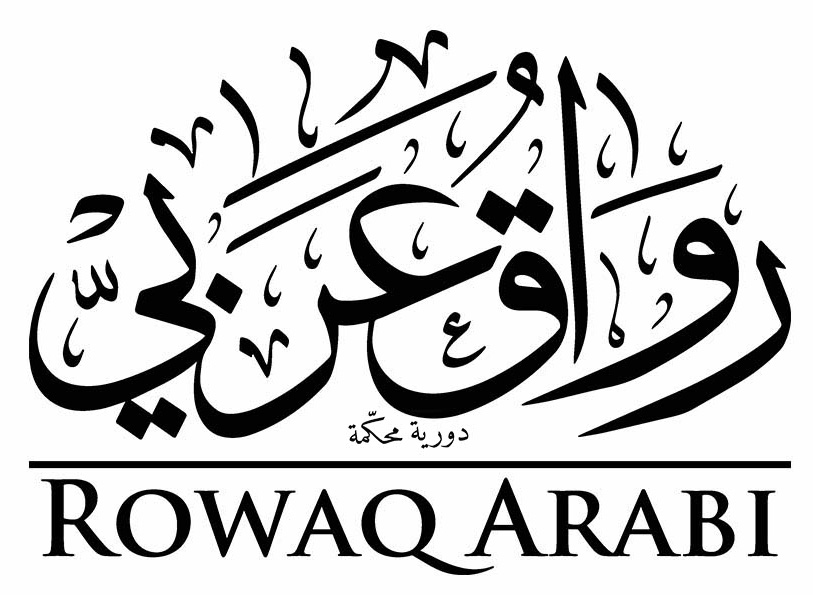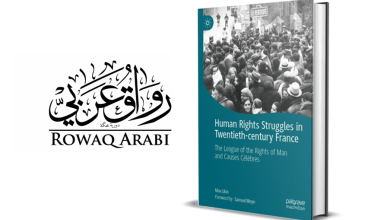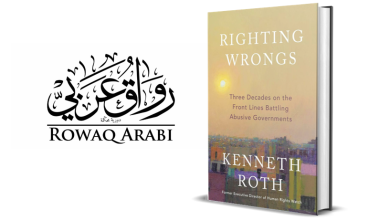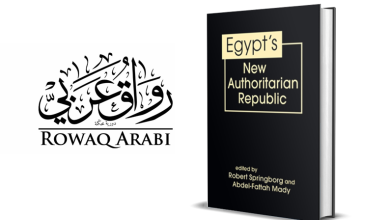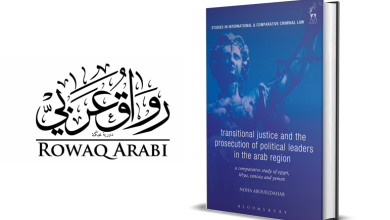Book Review: Future of Arab Regimes After the Gulf Crisis by Mohamed Sayed Said

Citation: Romdhani, Messaoud (2024) ‘Book Review: Future of Arab Regimes After the Gulf Crisis by Mohamed Sayed Said’, Rowaq Arabi 29 (3), pp. 5-10, DOI: 10.53833/WRFX8543.
During the Iraqi invasion of Kuwait on 2 August 1990, most Arab positions, both official and popular, did not go beyond astonishment, situational emotions, reactionary attitudes, ideological alignment, and siding with one party or the other. Despite the gravity of the catastrophe—not only for the Gulf region but for the Arab regional order as a whole—there are limited studies critically examining the crisis and analysing its deep roots, potential repercussions, and confirmed impacts.
According to the book Future of Arab Regimes After the Gulf Crisis, authored by Mohamed Sayed Said and published by the Kuwaiti periodical Alam Al-Ma’refa,[1] the crisis goes beyond the issue of a reckless Iraqi regime aspiring to swallow a neighbouring sovereign state. The invasion violated all the foundational ties uniting Arab states—fragile and fluctuating as they may be—and international law. The book raises another critical issue: the extent of cohesion within this entire regional system and the awareness of its regimes, especially those with totalitarian ideological convictions, of the power shifts in the global order after the disintegration of the Soviet Union and the decline of the bipolar world that once governed global affairs.
Thus, the author considers the Iraqi government’s decision to invade Kuwait as one of the ‘most recklessly dangerous decisions in modern Arab history’.[2] It ignored international shifts and failed to properly interpret the history of previous integrationist unity attempts led by historic leaders. Eventually, these leaders realised that, despite their ideological infatuation with Arab unity, the prospect of imposing it by force remains impossible. The repeated failures of these unity attempts in the 1960s and 1970s further underscore the need to recognise the Arab national reality and accept the principle of the nation-state. It also highlights the need to preserve special ties among Arabs—ties sustained by geographic continuity and harmony in many linguistic, cultural, and historical elements.
The Crisis of the Arab Regional Order
The Gulf Crisis cannot be understood in isolation from the broader crisis of the Arab regional order. Relationships between Arab states have often been marked by tension and conflict, with brief and infrequent moments of stability. These recurrent conflicts stem from ideological contradictions between Arab regimes, the alignment of some ‘moderate’ regimes with global powers, and rivalry for leadership. Tribal legacy continues to influence much of prevailing Arab culture—emphasising competition and conflict rather than collaboration and solidarity. Furthermore, the inability of Arab governments to implement agreed-upon decisions and follow through on resolutions made at summits and in Arab League meetings has eroded the credibility of any joint action.
But do all these issues, dilemmas, and obstacles justify the invasion? Certainly not. It occurred at a time when the Arab order was attempting to heal its wounds, overcome its disputes, and address its fragility, particularly following the Arab Summit in Amman (1987), which saw understandings and reconciliations among many Arab countries. The invasion represented a ‘behavioural rupture in a movement towards awakening, however weak that movement may have been’.[3] The Iraqi leadership chose to make a reckless decision and ‘impose it upon itself and the entire Arab world—the forcible annexation of an Arab state’.[4]
Regimes That Do Not Represent the Will of Their People
In truth, the crisis of the Arab regional order cannot simply be reduced to the conflicts and rivalries between regimes. Rather, it lies in the absence of genuine representation of the will of their people. The strength of any regional order, the source of its states’ power, and the credibility of its decisions are not measured by the extent of formal agreement and alignment among regimes. It lies in their responsiveness to the issues of their people and their ability to fulfil popular aspirations. Here is where Arab governments fall short: the real concerns of the people, such as freedom and democracy, are excluded from official agendas.[5] This disconnect further explains the consistent failure to achieve development and political advancement.
The weakness of the Arab regional order is also linked to the gap between it and international changes. It was unable to adapt to the new phase of the global order that began in the mid-1980s with the collapse of ‘bipolarity’ and the shift to a ‘unipolar’ world. This shift posed a real challenge for the region and its pressing issues, especially following the Gulf Crisis.
The Crisis of the Iraqi Regime
The Iraqi regime was in a state of crisis prior to embarking on the invasion. This regime emerged from its long war with Iran exhausted, having drained all its financial and economic resources, and burdened with massive debts. Most of its revenues were directed toward armament, building military complexes, and acquiring advanced war technology. This created a stark contradiction between enormous military capabilities and economic fragility, which was worsened by the decline in oil price.
This contradiction could only have been resolved in one of two ways. The first, a rational approach, through highly efficient economic management. This would require abandoning the militarisation of the economy and embracing political openness. This includes bringing back Iraqi talents and expertise, forced to flee repression and lack of prospects, and allowing them to contribute to sustainable development and a modern civilian economy. The second approach involved focusing solely on the military apparatus and using it to pressure other Gulf states. The first solution was impossible—since it would mean the ‘denial of the essence of the Ba’athist regime’, built on the glorification of ‘brute force’ and violence. The second option was the preferred choice, ultimately leading to the disaster of the invasion, further weakening and fragmenting the Arab regional system.
The Difficulty of Integrating Minorities
The catastrophic economic situation had numerous destructive effects on Iraq’s unity and internal cohesion even before the invasion. During the 1970s, the authoritarian state succeeded in accommodating a significant portion of sectarian and ethnic identities by integrating them into public life. It allowed them to assume government responsibilities and provided social welfare. The oil boom also contributed to economic development and reduced the isolation of the south. However, once the economic situation began to deteriorate due to militarisation, it became apparent that the state could ‘no longer maintains an acceptable level of integration for ethnic and sectarian minorities’.[6] There is no doubt that the invasion of Kuwait and the U.S.-led war against the Iraqi regime exacerbated the adverse conditions for this integration.
The Death of Politics
A regime sustained by violence and repression eventually loses its political and ideological foundations. Instead, it transforms into a purely security-based regime that destroys its opponents and dissenters along with its own capable party cadres. This led, by the early 1980s, to a widespread escalation of security violence, which in turn resulted in the migration of hundreds of thousands of political and party cadres to North America and Europe. By the end of the decade, ‘the state no longer had a civilian face’, where ‘the state stripped itself of its political character and became a security state reliant on absolute violence’.[7] It became trapped in a vicious cycle, lacking the political and ideological support upon which it was initially founded. The Iraqi regime exhausted its external legitimacy due to its wars and invasions, isolating itself completely from its regional and international surroundings.
Among the devastating repercussions of the Gulf War is the unprecedented weakening of Arab ties. Resources were significantly destroyed, morale weakened and the crisis of trust between states deepened. This was exacerbated by the fact that the restoration of security and stability after the invasion was carried out by non-Arab forces, in the face of a feeble and fragmented Arab regional system. Other regional powers also emerged, such as Iran, Turkey, and Israel, which would have an important role in shaping new equations in the Middle East.
Thus, the Arabs entered a new era of international relations while suffering from a state of despair and weakness. The bipolar system left Arab states alone in a new world order that imposed its conditions and will on a list of historical disputes, the most significant of which is Palestine. The United States did not find great difficulty in convincing the Arab states gathered at the Madrid Summit (October 1991) to abandon the historical stance formed within the institutions of the Arab system regarding how to resolve the Arab-Israeli conflict.
Formulating Solutions to the Crisis
In the face of the multiple crises experienced by the Arab regional system, which peaked with the Iraqi invasion of Kuwait, it was necessary to look beyond security and stability in the region. It became urgent to address the many deficiencies and imbalances that led to the Arab rift, and to formulate a new understanding of the relationship between Arab governments. The approach to the new global order required reconsideration, as well as the governance and the relationship between Arab governments and their peoples.
It was necessary to abandon the slogan described by the author as ‘populist’ within the relations between Arab states and their structures, as well as their bilateral relations. A more worthwhile route would be to ‘redistribute Arab wealth’, and replace it with a more rational and effective approach based on economic cooperation and developmental integration. Economic integration can operate independently of higher political structures. It can also overcome all ideological barriers, with its success reliant on activating functional and administrative structures and dividing labour between states. Said believed that the ‘Arab world is more qualified than other parts of the Third World to achieve a more advanced division of labour and roles’.[8]
At the level of relations with the outside world, the author believes it is essential to absorb global changes and respond to them creatively, meaning adherence to international legitimacy. This adherence does not mean submission, accepting the status quo, or complying with the dominance of great powers and the acceptance of double standards. Rather, it means defending the principle of this legitimacy and striving to implement it with justice. International legitimacy that permits oppression and injustice deserves to be opposed, and efforts should be made to restore its balance. ‘There is nothing that obliges any country to refrain from attempting to change a rule of international legitimacy using the means and tools defined by this international legitimacy’.[9]
The relationship between Arab governments and their peoples remains one of the most significant obstacles preventing the development of the region. The main reason lies in the arrogance of rulers and their making of unilateral and often wrong or reckless decisions. In the absence of independent institutions and constitutional checks, rulers can make decisions aimed solely at perpetuating their power. Therefore, democracy is one of the most important mechanisms that can help the Arab regional system overcome its slow death. It is the only system capable of empowering the people with the will to ward off any external dominance. This is especially true given that the new global order is not entirely negative or driven solely by a continuous quest for hegemony. It has established the mechanism of democracy and made it one of its main pillars, ‘until it became an integral part of the global value system’.[10]
The Difficulty of Digesting Democracy
The problem still lies in the difficulty of accepting the principles of democracy and human rights and making them a model for governance in the region. This issue is not limited to governments but extends to the level of the people and even cultural and political elites. Based on the establishment of Arab regimes’ narratives founded on individual rule, suppressing all opposing voices, and rejecting dissenting opinions, the totalitarian mindset is not exclusive to these regimes. It is deeply rooted in Arab public opinion, even within the educated classes, a significant portion of which—during the Gulf crisis—showed support for violence, annexation by force, and disregard for legitimacy and law.
Perhaps the most important lesson that the region—both its regimes and its peoples—must learn is that security and stability cannot be guaranteed without ‘collective training in democracy’.[11] This may seem difficult, due to the factors we have mentioned earlier. However, a gradual approach to dealing with its values and issuing an ‘Arab Declaration of Human Rights’ that encompasses the most essential aspects of these rights and works toward modernisation at the mid-level could allow for an Arab renaissance.
In fact, the importance of the book lies not only in its thorough examination of the repercussions of the Gulf crisis on the Arab regional system, both present and future. The book also dissects the reality of this system from its political, social, and cultural aspects. It identifies the reasons for its fragility and weaknesses in order to rebuild it on more solid foundations in a changing world. It is a book that deserves careful reading, not only to understand the circumstances and details of the Gulf crisis more than three decades ago, but also to recognise the reasons for the exacerbation of incapacity and fragmentation in the Arab region today.
This article is originally written in Arabic for Rowaq Arabi.
[2] Ibid., p.13.
[3] Ibid., p. 67.
[4] Ibid., p. 69.
[5] Ibid., p. 22.
[6] Ibid., p. 158.
[7] Ibid., p. 167.
[8] Ibid., p. 275.
[9] Ibid., p. 279.
[10] Ibid., p. 271.
[11] Ibid., p. 273.
Read this post in: العربية
